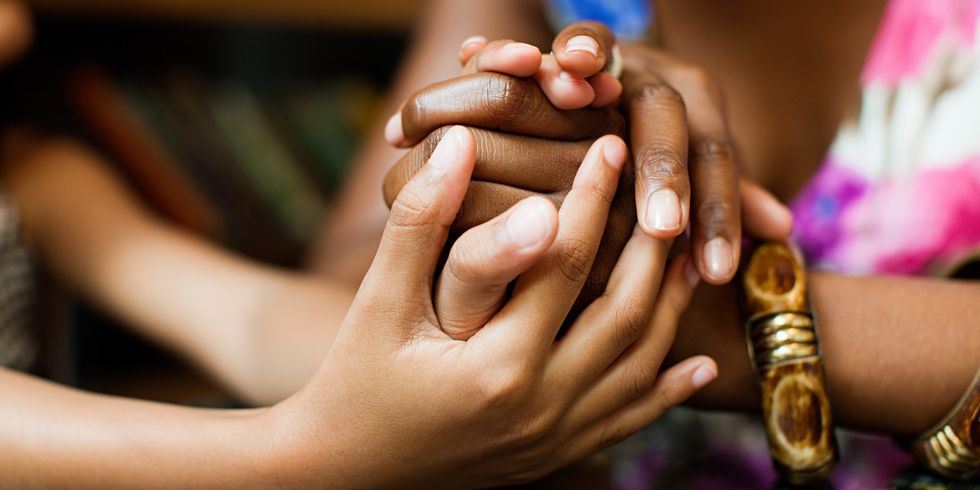Tears poured down my face as I scrolled through my Facebook last Monday afternoon. “Me too”. “Me too”. “Me too.” I watched as more and more girls bravely bared their soul. And then, as time passed, women. And men…and boys. “Me too”.
It’s now been nearly two weeks since Alyssa Milano, American actress from various films including “Who’s the Boss”, started a fire.
“Me too. Suggested by a friend: ‘If all the women who have been sexually harassed or assaulted wrote ‘Me too.’ as a status, we might give people a sense of the magnitude of the problem.’” She captioned her tweet: “If you’ve been sexually harassed or assaulted write ‘me too’ as a reply to this tweet” (Twitter).
The fire ignited. And in the past two weeks, the story has developed and trended across each and every social media platform.
But this was not the beginning ember. In fact, this movement is nothing new. This movement was created 11 years ago by a woman called Tarana Burke, a survivor herself. She will be releasing a film next year entitled “Me Too”. She began this movement as a push for survivors to communicate with one another and find a sense of peace in the empathy of those who had been through similar trauma. A concern has been that the movement was created specifically as a method of empowerment for women of color. While at first the very global response to Alyssa Milano’s movement frightened Tarana Burke that what truly is her life’s work had just been entirely overcast, in the past two weeks she has opened up about how her perception of the now viral phenomenon affects her personally. “As I watched it grow”, she reflected, “this is exactly what I knew about the power of these words — that’s why I chose them” (Boston Globe). In effect, Ms. Burke opened up to the idea that while she may have not personally popularized it two weeks ago, and while many actually are entirely unaware that the words and concept are credited to her, the power of her words have lived up, now, to what she had hoped. Two very simple words that we use on a very regular daily basis, have become a war cry against the injustices facing women around the world every single day. Further, however, it has become a common ground for survivors everywhere to realize they are not only not alone, but they are heard. “It was never really about amplifying the number of people who are survivors of sexual violence. It was about survivors exchanging empathy with each other… This viral moment is just confirmation that vision was real and possible” (Boston Globe).
I am no stranger to the idea of the oppressive epidemic. Coming from New York City, I have been exposed to the concept as I've gotten older and more independent and am able to walk the streets alone. A walk home from a night out in the streets of New York is truly the ultimate gamble. I was raised to never walk home alone in the dark, to be wary of those around me, to turn around every once in a while…to always trust my gut and never strangers. It is a painful reality that a marginal portion of my dear friends have been exposed to sexual assault, harassment, and violence at some point in their lifetime. I have, in turn, truly become desensitized to hearing of these experiences. While my dear friends’ disclosures make my heart ache, my fists clench, my eyes tear…they do not necessarily shock me as they should. This was brought to my attention last Monday as I was scrolling through my Facebook feed, seeing these two simple words over and over and over. Suddenly removed from my desensitization, the mere number of disclosures in every literal sense knocked the breath from the very depths of my lungs. Sexual harassment and assault should be horrifying and shocking.
Every.
Single.
Time.
It should shake us at our cores. The minute it becomes expected is when the epidemic is being fostered. At the end of the day, that’s what differentiates a phenomenal problem from a worry — rarity. Sexual assault has become something almost accepted in everyday society. Simply, the problem clearly and logically lies in the actions themselves, but the injustice lies in the desensitization. Imagine a world where every single rape was treated as it should be, every assault, every harassment. This movement not only removes individuals from their bubble of desensitization, but further and more importantly, it demands something be done. The pedals are turning.
For every individual who has made another feel in danger, who has violated another’s God given and life given right to free will, who has taken liberties they have no right to take, hear them. “And her, and her, and her, and her, and her, and her, and her, and her…” (Facebook).
For those who have made others feel powerless. For those who have made others live in fear.
Live in fear. Live in shame.
Over 1.7 million have spoken out, and this is only the beginning.
The Boston Globe (https://www.bostonglobe.com/lifestyle/2017/10/19/tarana-burke-activist-behind-too-where-movement-goes-from-here/YGV7Epp4wMNB9R7Qjcp9RN/story.html)
Alyssa Milano (@Alyssa_Milano) · Twitter
Facebook (Christian Gregory)
















